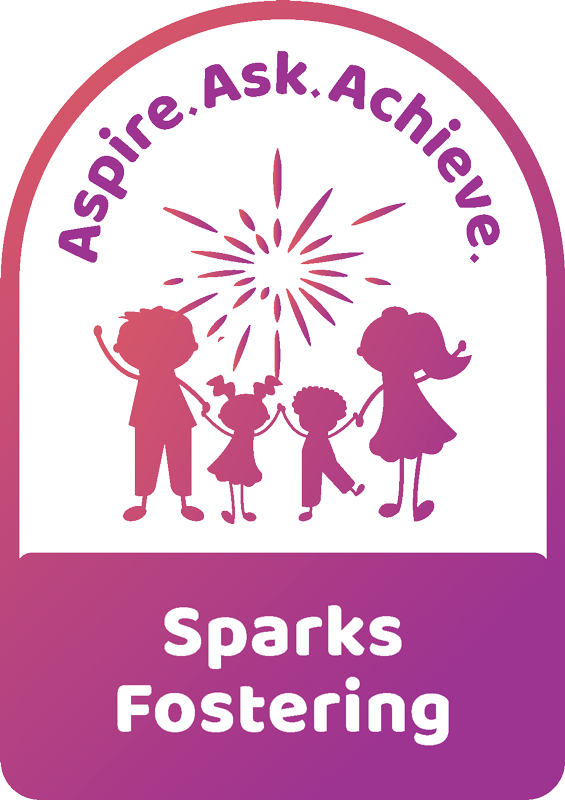Caring for babies
Feeding the baby
Being responsive to baby’s feeding cues and being comfortable and relaxed whilst feeding are important, whether breast or bottle feeding. If you are not familiar with breastfeeding, it may feel as though the baby is feeding all the time and you may worry that the baby isn’t getting enough milk. This is a common concern, but feeding a lot is normal for a breastfed baby. You know the baby is getting enough milk if he is doing wet and dirty nappies – see the attached NCT factsheet for more information.
Breastfeeding parents (and their foster carers) should review information provided on the topic by NHS and the range of resources provided by UNICEF.

If the parent is using drugs and wants to breastfeed, see the attached information from The Breastfeeding Network. If the parent drinks alcohol and is breastfeeding, review the relevant information from the NHS.
Review information from the NHS and information from UNICEF if the parent is bottle feeding.
UNICEF has produced a range of baby-feeding resources in different languages.
Babies shouldn’t be introduced to solid food until they’re around 6 months old – if the parent is planning to move on from the fostering home before then, they should be given information about weaning before they leave. The Family Lives website has useful information about weaning.
Parents/carers should be mindful of any potential signs of allergies when weaning the baby – see the NHS website for further information about intolerances/allergies and further information about weaning and feeding.
First aid
If the baby shows any signs of illness (such as fever or vomiting, very sleepy or difficulty in waking, excessive crying etc.) the parent/carer should call 111 (non-emergency) or 999 (emergency).
At the first signs of illness (or before), carers should review the NHS guidance ‘Is your baby or toddler ill?’
Jaundice in newborn babies is common and usually harmless. It causes yellowing of the skin and the whites of the eyes. If you suspect that a child in your care has jaundice, read further information about ‘Newborn jaundice’ on the NHS website.
Carers should be alert to any symptoms of meningitis – see further information on the NHS website.
The Red Cross has produced a free ‘General first aid’ app and a free ‘Baby and child first aid’ app – carers should download these apps and review the content. Formal training can be booked with The Red Cross or St Johns Ambulance Service.
Midwifery and health visitor support
The midwife usually does a mixture of home visits and postnatal clinic appointments for up to a month after the birth. Also, a Health Visitor will visit during pregnancy and when the baby is about 10 days old. Then depending on the needs of the mother and baby, they will do regular home visits or see the mother and baby in a local clinic. This is a great source of support and is your first port of call for any concerns or queries you may have about the parent or baby’s health (although the social workers should also be notified, and discussions recorded).
The Institute of Health Visiting has produced a 6 minute video ‘Health visitors: for every family’, which outlines the role of the health visitor, and is useful for parents and carers.
Drug and alcohol use
Infants of mothers who used drugs during pregnancy may develop withdrawal symptoms, known as neonatal abstinence syndrome (NAS) are at risk of being removed from their families and placed into foster care, and may suffer further problems later in life. Foster carers who are supporting babies (and/or parents) with NAS should read this summary produced by NHS Northern Devon Healthcare. Further information about substance use is available on the ‘Talk to Frank’ website.
Children of mothers who drank alcohol during pregnancy may suffer from foetal alcohol spectrum disorder (FASD). Further information can be found on the ‘Healthy Children’ website. There is also a ‘National Organisation for FASD’ website with lots of useful information. Parents who drink alcohol should be encouraged to access information on the Drink Aware website.
Potty training
Many children begin potty training between 18 months and 3 years old, but it can vary. To read more about the signs that a child may be ready, see the webpage ‘When should I start potty training’, by ‘Action for Children’. The website also has information and tips about how to support the child through the potty training process.
Premature labour and neonatal care
Premature labour is labour that happens before 37th week of pregnancy – foster carers supporting parents who are further along in the pregnancy should review the information about premature labour and birth on the NHS website.
Foster carers who are supporting parents whose children are on the neonatal care unit should review the guidance provided by UNICEF.

Safe handling and shaken babies
Rough handling of babies can cause serious injuries. Handle with care: a guide to keeping your baby safe (NSPCC) explains the dangers and gives advice on safe ways of holding and caring for a baby. The guidance advises that babies should never be shaken: Babies are fragile, so you should be gentle and supportive. Shaking the baby can lead to blindness, deafness, fits, learning difficulties, brain damage, or even death. The guide explains the proper ways to hold and soothe babies.
The ‘ICON’ model advises parents that ‘infant crying is normal’; ‘comforting methods can help’; ‘it’s OK to walk away’; and ‘never, ever shake a baby’. See the website for further information.
Safer sleep and Sudden Infant Death Syndrome (SIDS)
All carers of babies should strictly follow the NHS guidance about Sudden Infant Death Syndrome (SIDS). The guidance states that to reduce the risk of SIDS carers must: place the baby on their back to sleep, in the same room as you, for the first 6 months; keep the baby’s head uncovered – their blanket should be tucked in no higher than their shoulders; if wearing the baby in a sling or carrier, do not cover their head with the sling material or with a muslin; place the baby in the ‘feet to foot’ position, with their feet at the end of the cot or Moses basket; do not let the baby get too hot or cold; never sleep with the baby on a sofa or armchair; and do not smoke (or vape) around pregnant women or around the baby after they’re born and do not let anyone smoke (or vape) in the same room as the baby. Click the link (above) for further information on each point.
UNICEF has also produced useful resources on safe sleep and SIDS.
The Lullaby Trust has produced a nicely illustrated leaflet ‘Safer sleep for babies: A guide for parent and carers‘. It may be useful to print this out for the parents. Further resources are available on the ‘Child Action Prevention Trust‘ website.
A ‘Local learning review for baby Sally‘ outlines the tragic circumstances under which a baby died in foster care due to poor safe sleep practice.
Skin-to-skin contact and relationship building
Research has shown that lots of skin-to-skin contact between a baby and their parents promotes attachment, feeding, and reduces levels of stress hormones in mothers and babies. You can encourage either parent to hold the baby (and/or hold the baby yourself), wearing only a nappy, on their chest, for extended periods of time. This could be whilst relaxing watching TV in the evening – the baby can be tucked under a loose top with a small blanket over the top. Skin-to-skin is important whether the baby is breast or bottle-feeding. See the attached resources from UNICEF for further information.
The Anna Freud centre has published a 20 minute podcast, ‘Child in Mind: Bonding with your baby’, where childcare experts talk about the topic with parents.
The NSPCC has produced ‘Look, Say, Sing, Play’ resources, which not only help with bonding, but also help with the baby’s brain development.
Teething
Most babies first teeth come through around 6 to 9 months (but this can vary greatly). Teething symptoms usually start a few months before the teeth come through. See information from Family Lives if you’re caring for a baby that has signs of teething.
Misc
The NSPCC has published papers titled ‘Infants: learning from serious case reviews’, and ‘Out of routine: a review of sudden unexpected death in infancy (SUDI) in families where the children are considered at risk of significant harm’, which summarise key findings and learning for improved practice around working with children under the age of 2 and under.







